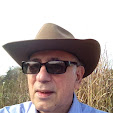In what is a breakthrough in general aviation fuel, Swift Enterprises Ltd of West Lafayette has introduced a non-oil fuel to an experimental aircraft, a twin engine Piper Seminole at the Sun 'n Fun International Fly-in and Expo (April 13-18 at Lakeland, Florida). No engine modifications are needed
The fuel consists of biomass such as sorghum and switchgrass to produce a high-octane fuel that could replace leaded avgas in general aviation planes. The gas produces 15 per cent more volumetric energy while eliminating lead, ethanol, toluene or oxygenates and produces a 20% drop in pollutants over current 100LL.
Embry-Riddle Aeronautical University plans to introduce this non-lead fuel to its fleet of more than 40 Cessna 172's.








